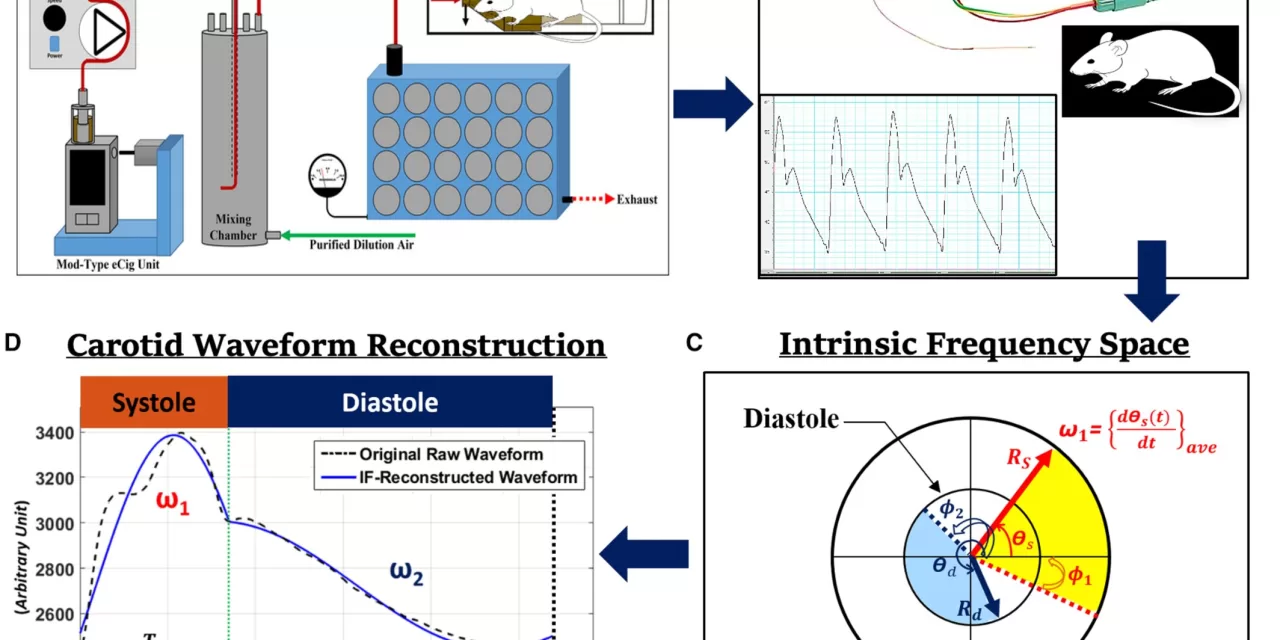A recent study co-led by researchers from the Air Pollution Health Effects Laboratory (APHEL) at the University of California, Irvine (UC Irvine) has uncovered alarming evidence linking electronic cigarette use, commonly known as “vaping,” to increased cardiovascular risk. While vaping is often promoted as a safer alternative to traditional tobacco smoking, particularly among adolescents and teenagers, this new research challenges that notion by revealing its significant impact on heart health.
Published in the Journal of the American Heart Association, the study highlights how vaping can interfere with the normal coupling of blood flow and pressure as it moves from the heart to the arteries. This disruption, according to researchers, is a contributing factor to heart disease, which remains one of the leading causes of death globally.
Dr. Michael Kleinman, co-director of APHEL and adjunct professor of environmental and occupational health at UC Irvine’s Joe C. Wen School of Population & Public Health, led the study in collaboration with peers from the University of Southern California and the Huntington Medical Research Institutes in Pasadena. The team used advanced research facilities at UC Irvine to simulate realistic vaping exposures on animal models, offering a controlled environment to isolate the effects of nicotine.
“Our findings suggest that vaping, particularly e-cigarettes containing nicotine, significantly impairs normal heart function,” Dr. Kleinman shared. “This disruption is a clear indication that using e-cigarettes—and possibly other nicotine-based inhalation products—could pose serious risks to heart health.”
The research builds on past studies that have linked exposure to inhaled particles—especially fine particulate matter (PM2.5) from ambient air and vaping devices—to cardiovascular issues, including heart attacks, arrhythmias, and hypertension. However, gaps remain in fully understanding the exact mechanisms by which these pollutants compromise cardiovascular function.
To address this, the study employed a novel, non-invasive method of monitoring heart function, a technique that could one day be adapted for use on smartphones, broadening accessibility for future cardiovascular monitoring.
Vaping has grown in popularity, especially among younger populations, with many viewing it as a safer alternative to smoking. However, this study adds to mounting evidence that e-cigarettes may pose significant health risks, particularly to the cardiovascular system.
Dr. Kleinman emphasized the need for stronger public health policies to reduce exposure to inhaled nicotine, stating, “Our results support the growing call for policies aimed at limiting access to nicotine delivery systems, including newer synthetic nicotine products that may soon enter the market.”
This research underscores the broader public health concerns surrounding vaping, further linking it to heart disease and raising questions about how best to regulate e-cigarette use, particularly among vulnerable groups like teenagers.
Reference: Rashid Alavi et al. “Adverse Cardiovascular Effects of Nicotine Delivered by Chronic Electronic Cigarettes or Standard Cigarettes Captured by Cardiovascular Intrinsic Frequencies.” Journal of the American Heart Association, 2024.












